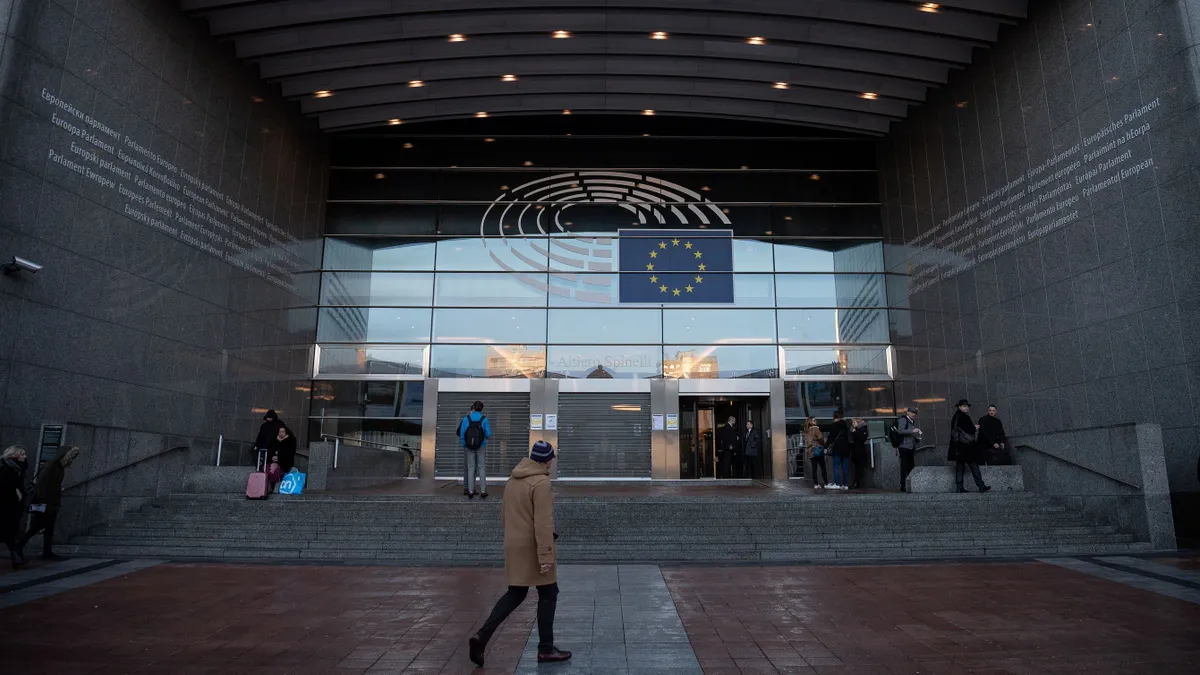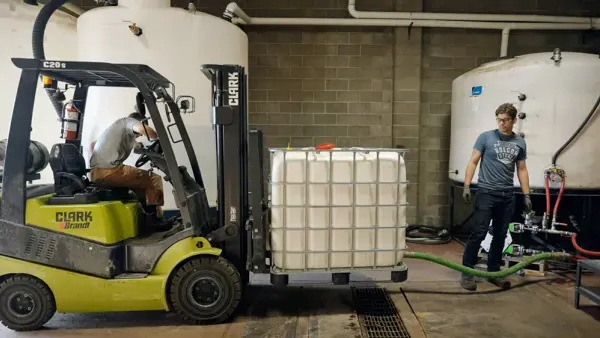Dive Brief:
- The Corporate Sustainability Due Diligence Directive was approved on Wednesday by the European Parliament, according to a statement by the legislative body.
- The law requires companies, along with their suppliers and producers, to “prevent, end or mitigate their adverse impact on human rights and the environment,” according to the statement. That impact includes “slavery, child labour, labour exploitation, biodiversity loss, pollution or destruction of natural heritage,” according to the statement. Companies will also be required to “adopt a transition plan to make their business model compatible with the Paris Agreement global warming limit of 1.5 [degrees Celsius],” per the statement.
- The law will also require individual countries to be in charge of investigating and “naming and shaming” companies that don’t comply, according to the statement. Countries will also be responsible for imposing fines of at least 5% of companies’ annual worldwide revenue for the “very gravest breaches,” according to a press conference.
Dive Insight:
The law, which passed 374 votes to 235 votes with 19 abstentions, is smaller in scope than the text agreed upon in December 2023. The previous version would have applied to companies with more than 500 employees and 150 million euros in revenue, or non-European companies with more than 150 million euros in European revenue. That version almost failed to clear the European Council in March.
The current directive will apply to EU companies and parent companies with more than 1,000 employees and more than 450 million euros in annual revenue, or approximately $480 million at current exchange rates, as well as non-EU companies with the same amount of EU revenue. It will also cover companies that have EU franchising or licensing agreements if their revenue is above 80 million euros with at least 22.5 million euros in royalties.
“Companies will be liable for damages caused by breaching their due diligence obligations and will have to fully compensate their victims,” according to the statement.
The bill’s “impact will unfortunately be limited as many intermediary and smaller (but still large) operators will be able to escape their responsibilities and continue operating with impunity,” Muriel Treibich, corporate accountability coordinator at the Clean Clothes Campaign, a global nonprofit that advocates for garment workers’ rights, said in a press release.
The final law “will cover only a very small minority of EU companies,” Clean Clothes said in the release.
Dutch Member of Parliament Lara Wolters, the law’s chief negotiator in the European Parliament, said in a press conference on Wednesday that the reduction in scope “left a bitter taste in [her] mouth.”
“Upping the thresholds was not in the deal we struck in December,” she said. But while the directive currently only applies to the largest companies, “in the future we will be looking at the scope of this directive more broadly,” she said.
Wolters said she doesn't know how many companies will fall under the current scope.
Because enforcement is left to member countries, “it remains to be seen whether in practice victims [will] be able to make use of the civil liability mechanism,” Giuseppe Cioffo, lobby and advocacy coordinator at the Clean Clothes Campaign, said in the statement.
Clean Clothes also noted in its statement that CSDDD does not include post-consumer activities such as recycling, dismantling and landfilling, nor does it ask for compliance with the International Labour Organisation’s Conventions on Occupational Safety and Health.
“This will leave many workers producing clothes for European consumers at risk of working in hazardous conditions that may have catastrophic consequences for their lives, as the Rana Plaza disaster proved over ten years ago,” the organization said.
The European Council now needs to formally endorse the law, which will likely happen at the end of May, according to a European Parliament spokesperson.
EU member countries have two years to create national laws that reflect the new CSDDD legislation, per the European Parliament’s press release. The rules will apply first in 2027 to EU and non-EU companies with more than 5,000 employees and worldwide annual revenue of more than 1.5 billion euros ($1.6 billion), while smaller companies that fall within the scope will have an additional one to two years to comply, depending on their size.










